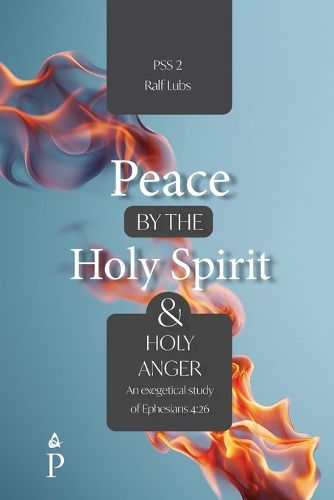Readings Newsletter
Become a Readings Member to make your shopping experience even easier.
Sign in or sign up for free!
You’re not far away from qualifying for FREE standard shipping within Australia
You’ve qualified for FREE standard shipping within Australia
The cart is loading…






This title is printed to order. This book may have been self-published. If so, we cannot guarantee the quality of the content. In the main most books will have gone through the editing process however some may not. We therefore suggest that you be aware of this before ordering this book. If in doubt check either the author or publisher’s details as we are unable to accept any returns unless they are faulty. Please contact us if you have any questions.
Be angry, and yet do not sin;
do not let the sun go down on your anger.
A problem passage. How to understand Paul's communication in Ephesians 4:26? Why does he say, "Be angry" in verse 26 and in verse 31 of the same chapter, "Get rid of all anger"? Does Paul give an order to be angry f?irst and says the opposite later? Is anger always sin or is it not sin "until the sun goes down"?
This verse has widely been understood as to imply that getting angry is not sin if it is 'righteous' or 'holy' anger. Thus, many conflicts caused by Christians in different relationships have been justified by this label.
On the other hand, identifying all anger as sinful has led to lots of frustration, even depression, projected anger, and other psychological effects of suppressed anger.
A sound biblical exegesis of Ephesians 4:26 leads to an understanding of what Paul, under the inspiration of the Holy Spirit, probably meant. It contributes to find ways to avoid harmful attitudes and behaviour of Christians. This in turn works thus for the health of the church and the individual Christian in his social surrounding for the progress of the gospel and God's glory.
Hypotheses
Orgizesthe/????????? is not an indicative, but an imperative, having the function of a challenge.
Paul does not change David's intention in Psalm 4:5 but communicates its very message by applying the underlying principle to his audience, a use that may be labelled here as historical correspondence.
Ephesians 4:26 flows perfectly well within its literary and NT theological contexts.
Paul's use of the term 'anger' does not refer to the secondary emotion, but, according to the usus loquendi, to its destructive expression.
Paul's advice is theologically, pastorally, and therapeutically sound and may be applied effectively today.
$9.00 standard shipping within Australia
FREE standard shipping within Australia for orders over $100.00
Express & International shipping calculated at checkout
This title is printed to order. This book may have been self-published. If so, we cannot guarantee the quality of the content. In the main most books will have gone through the editing process however some may not. We therefore suggest that you be aware of this before ordering this book. If in doubt check either the author or publisher’s details as we are unable to accept any returns unless they are faulty. Please contact us if you have any questions.
Be angry, and yet do not sin;
do not let the sun go down on your anger.
A problem passage. How to understand Paul's communication in Ephesians 4:26? Why does he say, "Be angry" in verse 26 and in verse 31 of the same chapter, "Get rid of all anger"? Does Paul give an order to be angry f?irst and says the opposite later? Is anger always sin or is it not sin "until the sun goes down"?
This verse has widely been understood as to imply that getting angry is not sin if it is 'righteous' or 'holy' anger. Thus, many conflicts caused by Christians in different relationships have been justified by this label.
On the other hand, identifying all anger as sinful has led to lots of frustration, even depression, projected anger, and other psychological effects of suppressed anger.
A sound biblical exegesis of Ephesians 4:26 leads to an understanding of what Paul, under the inspiration of the Holy Spirit, probably meant. It contributes to find ways to avoid harmful attitudes and behaviour of Christians. This in turn works thus for the health of the church and the individual Christian in his social surrounding for the progress of the gospel and God's glory.
Hypotheses
Orgizesthe/????????? is not an indicative, but an imperative, having the function of a challenge.
Paul does not change David's intention in Psalm 4:5 but communicates its very message by applying the underlying principle to his audience, a use that may be labelled here as historical correspondence.
Ephesians 4:26 flows perfectly well within its literary and NT theological contexts.
Paul's use of the term 'anger' does not refer to the secondary emotion, but, according to the usus loquendi, to its destructive expression.
Paul's advice is theologically, pastorally, and therapeutically sound and may be applied effectively today.